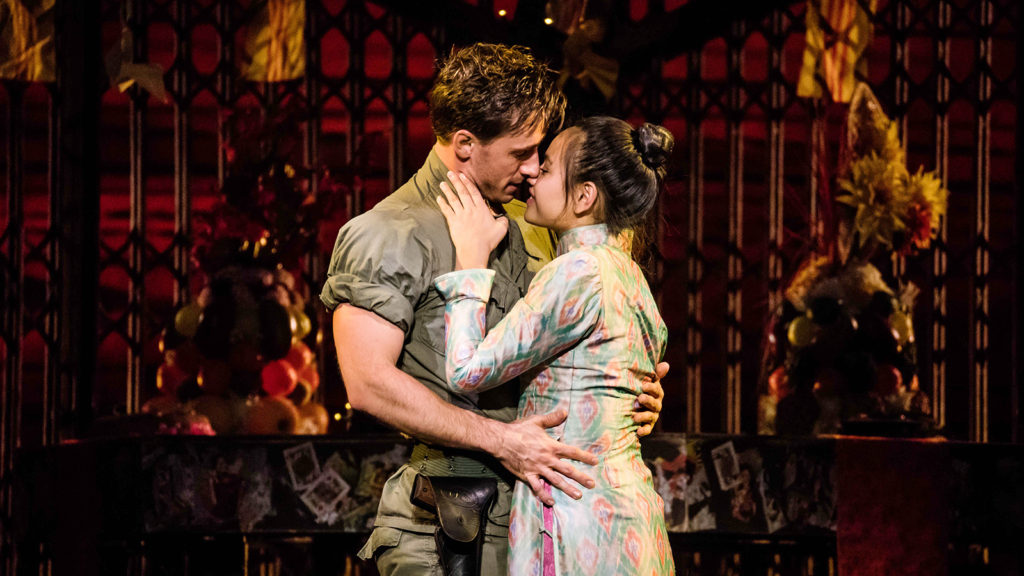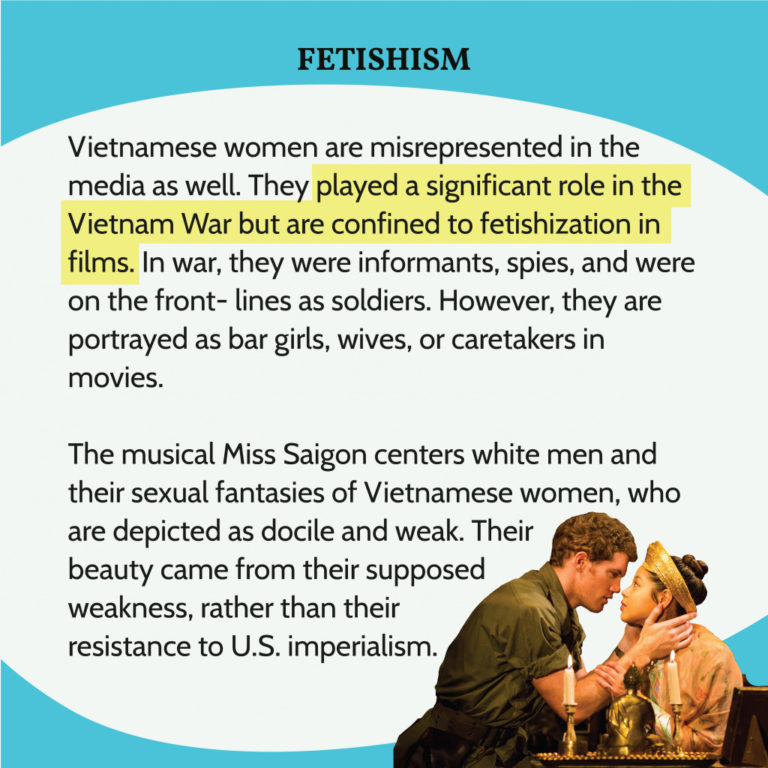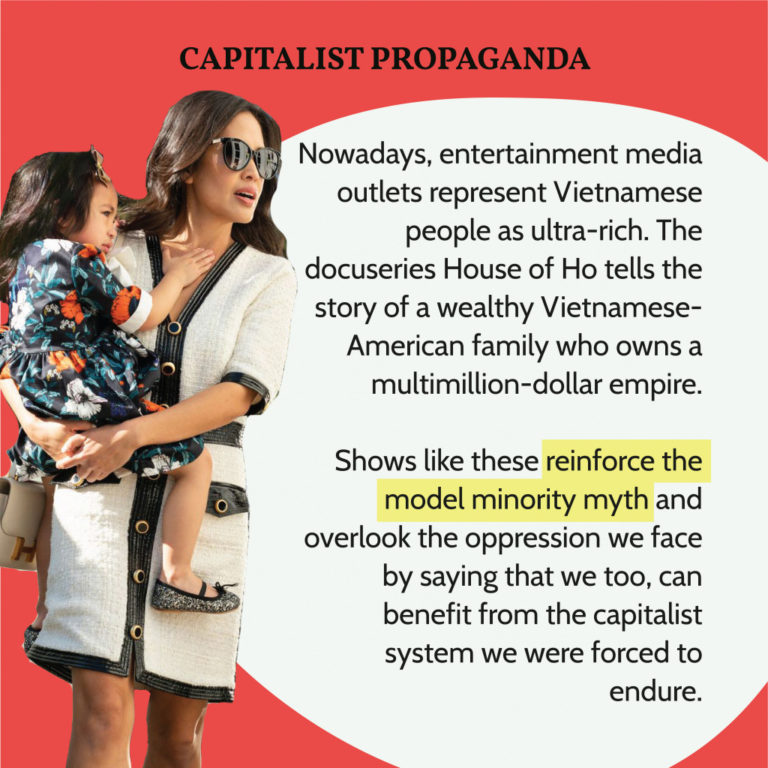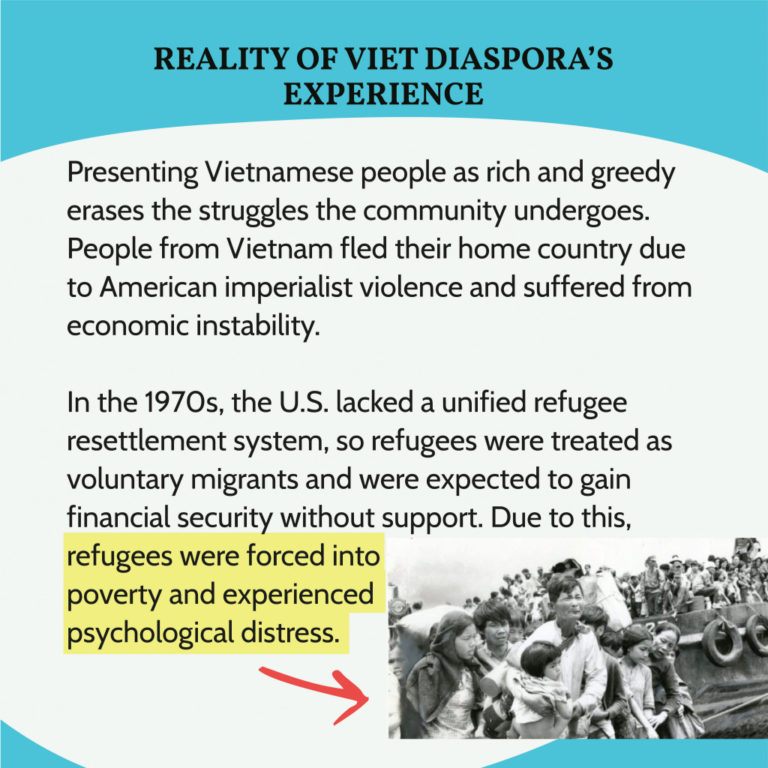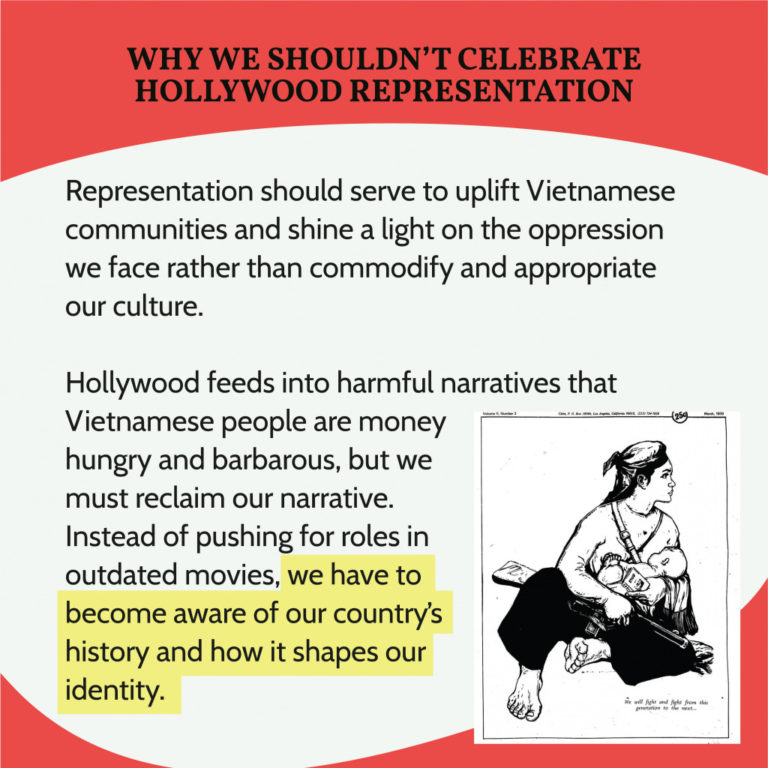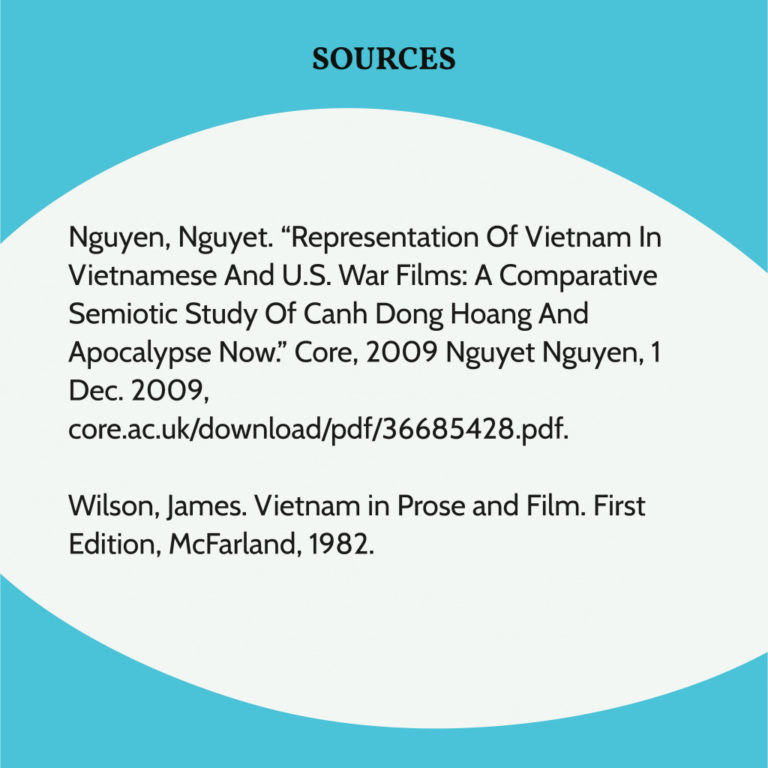Representation in American media: is it an accurate portrayal?
While some may celebrate the representation of Vietnamese people in American media, it typically adheres to racial stereotypes and advances war propaganda. Hollywood consistently characterizes Vietnam and its people as uncivilized and inferior to the West and overlooks the hardships we overcame.
Under-representation of Vietnamese experience
Movies of the Vietnam War tend to gloss over the conflict’s consequences on the people of Vietnam. The destruction of the country and its people through tons of bombs and chemicals is rarely acknowledged. Underrepresenting these problems allows the U.S. to victimize themselves rather than taking responsibility for pillaging the country.
Centrality of American men in war films
War films depicting the Vietnam War, such as Spike Lee’s Da 5 Bloods, also center on the experiences of U.S. veterans. These movies psychologize and individualize the conflict by tackling issues such as American soldiers’ deteriorating mental health.
James Wilson’s Vietnam in Prose and Film (1982) critiques these films by writing that, “Hollywood has derealized the war by packaging and selling a simplistic, sentimental soap opera of America in Vietnam.”
Orientalism champions Western superiority and inaccurately represents the Eastern world as underdeveloped. The phenomenon justifies endless wars and subjects countries to Western domination. By portraying Vietnam as barbarous, the U.S. is able to not only justify the war, but also portray themselves as heroic.
Fetishism
Vietnamese women are misrepresented in the media as well. They played a significant role in the American War in Vietnam but are confined to fetishization in films. In war, they were informants, spies, and were on the front- lines as soldiers. However, they are portrayed as bar girls, wives, or caretakers in movies.
The musical Miss Saigon centers white men and their sexual fantasies of Vietnamese women, who are depicted as docile and weak. Their beauty came from their supposed weakness, rather than their resistance to U.S. imperialism.
Capitalist propaganda
Nowadays, entertainment media outlets represent Vietnamese people as ultra-rich. The docuseries House of Ho tells the story of a wealthy Vietnamese-American family who owns a multimillion-dollar empire.
Shows like these reinforce the model minority myth and overlook the oppression we face by saying that we too, can benefit from the capitalist system we were forced to endure.
Reality of Viet diaspora’s experience
Presenting Vietnamese people as rich and greedy erases the struggles the community undergoes. People from Vietnam fled their home country due to American imperialist violence and suffered from economic instability.
In the 1970s, the U.S. lacked a unified refugee resettlement system, so refugees were treated as voluntary migrants and were expected to gain financial security without support. Due to this, refugees were forced into poverty and experienced psychological distress.
Why we shouldn’t celebrate Hollywood representation
Representation should serve to uplift Vietnamese communities and shine a light on the oppression we face rather than commodify and appropriate our culture.
Hollywood feeds into harmful narratives that Vietnamese people are money hungry and barbarous, but we must reclaim our narrative. Instead of pushing for roles in outdated movies, we have to become aware of our country’s history and how it shapes our identity.
Sources
Representation Of Vietnam In Vietnamese And U.S. War Films: A Comparative Semiotic Study Of Canh Dong Hoang And Apocalypse Now by Nguyet Nguyen
Vietnam in Prose and Film by James Wilson
